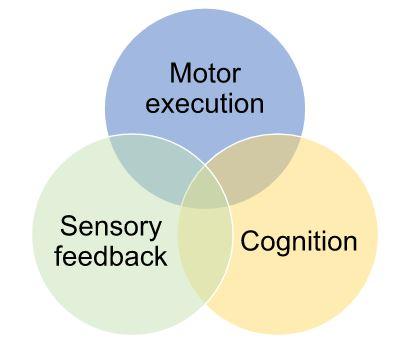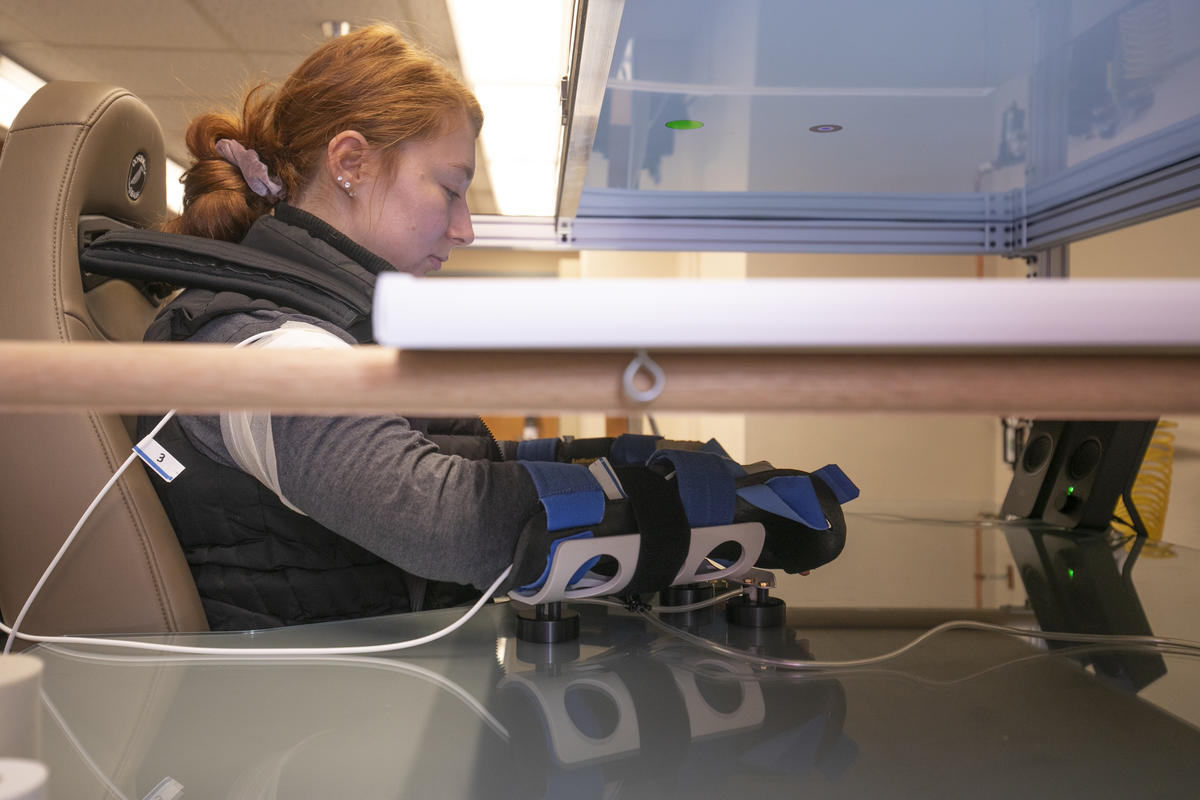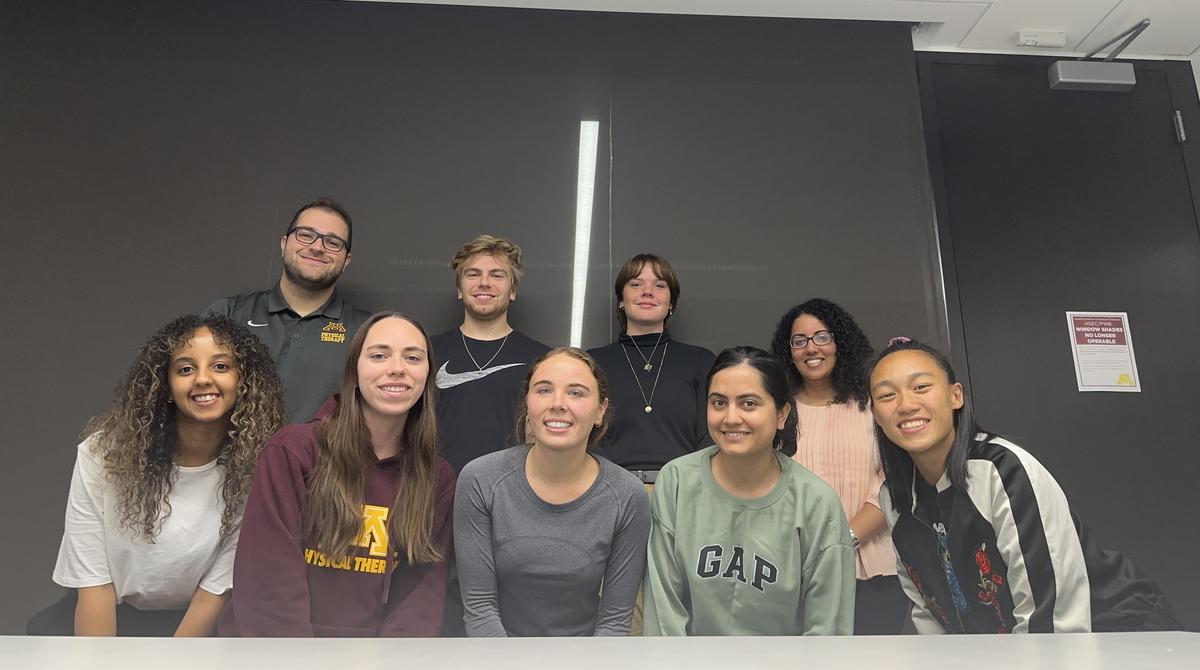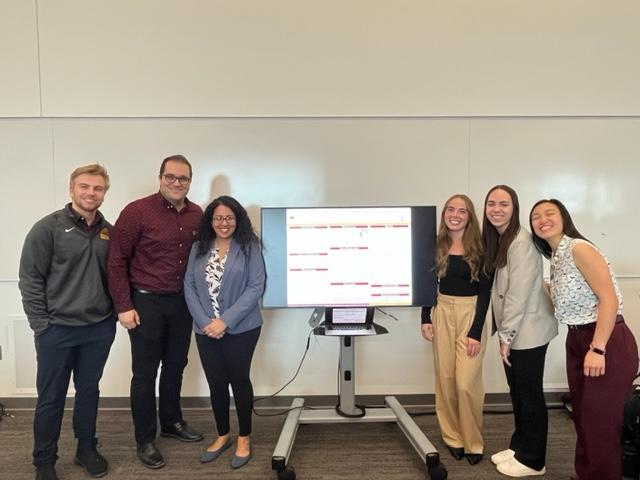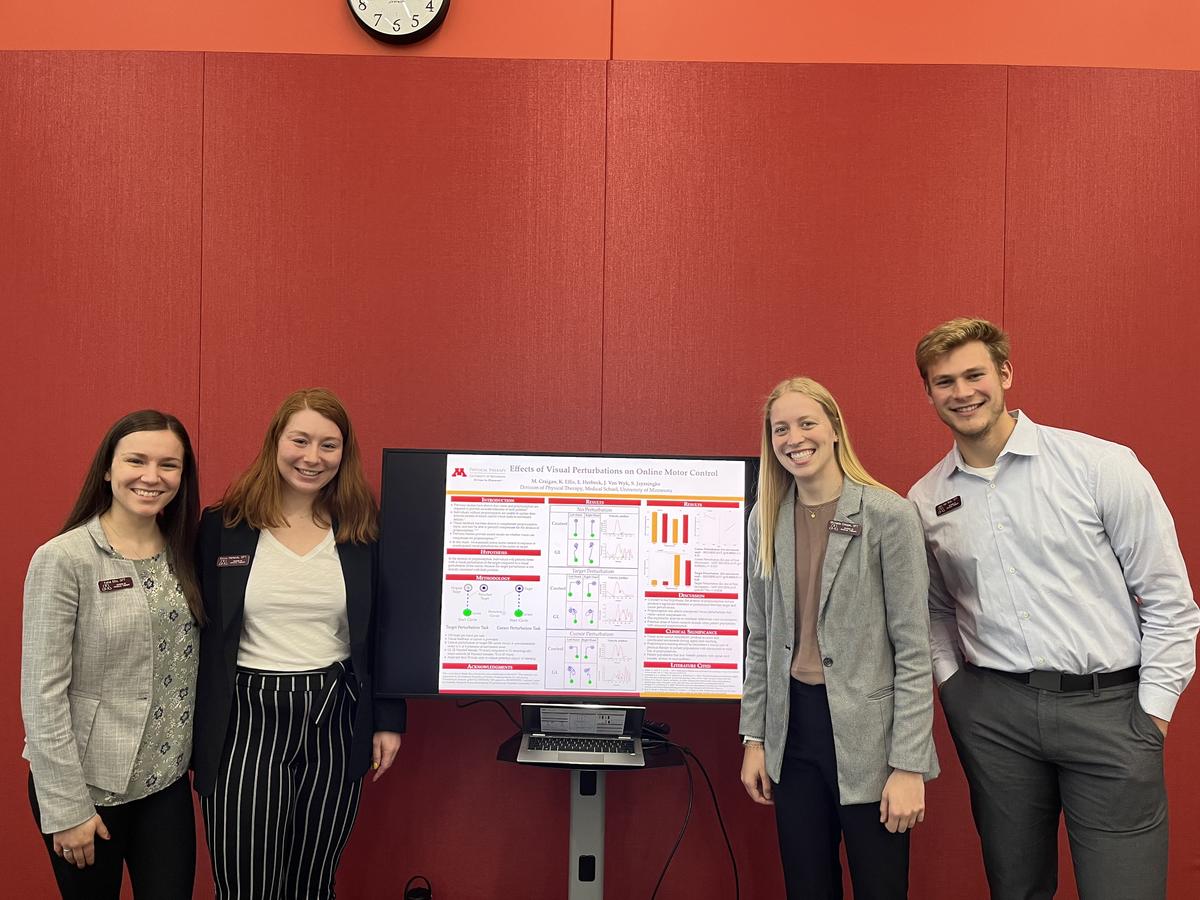Movement can be described as the result of a complex interaction between cognition, sensory feedback processes and motor execution. The Movement Control and Rehabilitation lab (MCR) is interested in exploring fundamental questions about the neural basis of movement control. Specifically, we study how cognitive and sensory feedback processes contribute to interlimb differences in movement control in both neurologically intact individuals and stroke survivors. The overarching motivation for our research is to develop non-invasive strategies for movement rehabilitation in individuals with movement disorders and impairments.
Our approach to studying movement control comprises of combining engineering concepts and tools with clinically-relevant measures. To that effect, we seek to answer questions related to movement by engaging with engineers, neuroscientists, clinicians, therapists, coaches, and patients. We believe that by using a holistic method comprising of engineering principles, neurophysiology, and clinical assessments, we can develop meaningful solutions for rehabilitating movement in individuals with movement disorders.
The MCR lab encourages diversity in thought and values a sense of community built on mutual respect.
Recent Lab news
Welcome to our new DPT Research Students and Undergrads!
We are pleased to announce our newest team of students joining the MCR lab summer 2024:
DPT students: Beth Albrecht, Evan Croy, Zaynab Kassam, Taylor Krone & Lillian Rapp
Undergraduate Students: Joshua Cheng and Jordan Nguyen
Read all about them on our People page!
Pramisha presents poster at 2024 U of MN Research Recognition Day!
On May 16th Pramisha presented her poster entitled "Do deficits in cognitive aspects of movement control differ based on side of brain damage?"
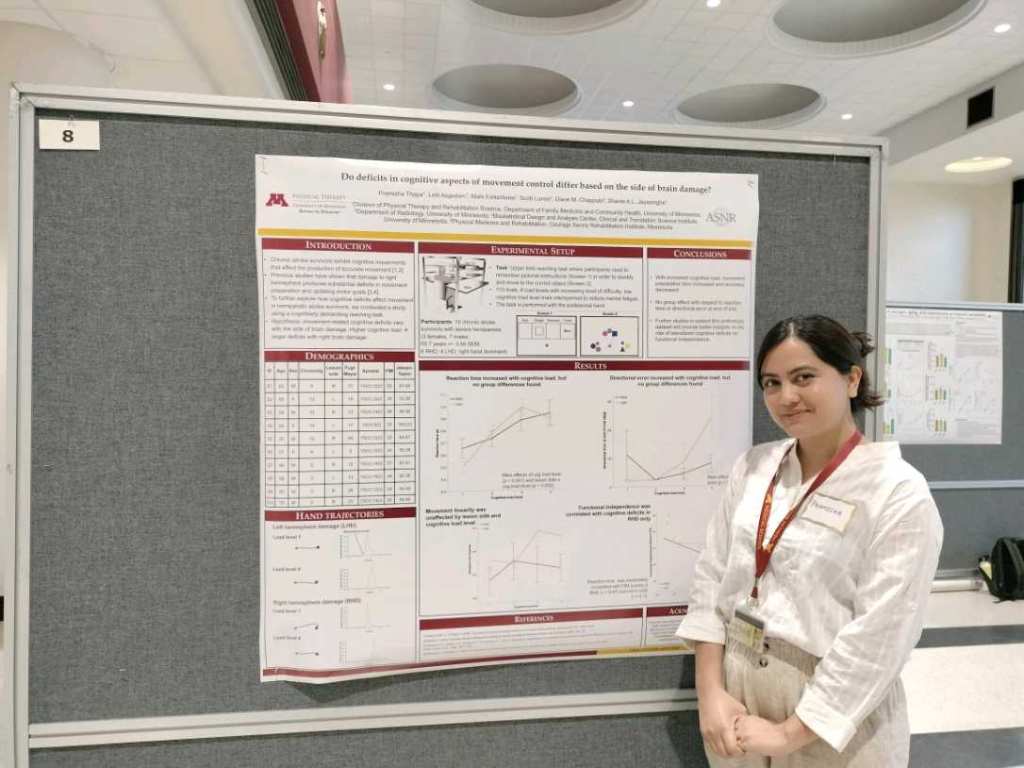
MCR Lab welcomes Michele Darger as our new Research Coordinator.
Welcome Michele. Thank you to Lelti for her hard work and best wishes as she transitions to medical school. Her innovative spirit will be missed!
DPT research group presents at Poster Day 2024!
Tyler C, Katherine, Kitty, Abigail and Tyler S presented their work at the Division of Physical Therapy’s annual Poster Day. This signified the group’s culmination of one year of research in the MCR lab. Good luck to the students as they begin their clinical rotations in fall!
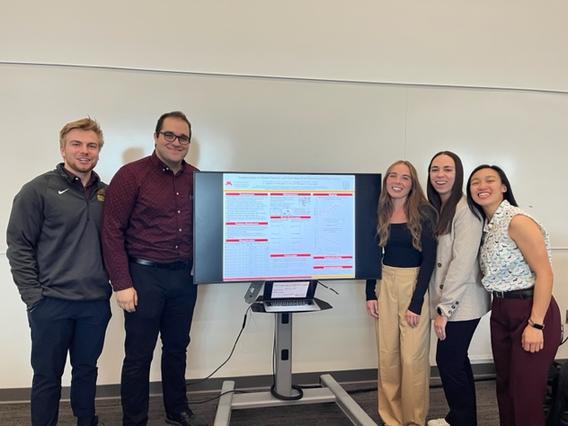
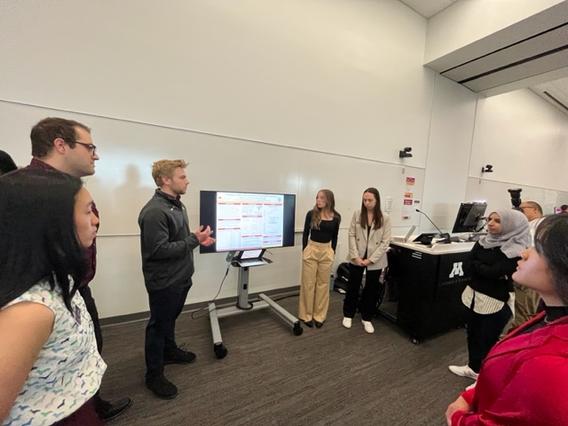
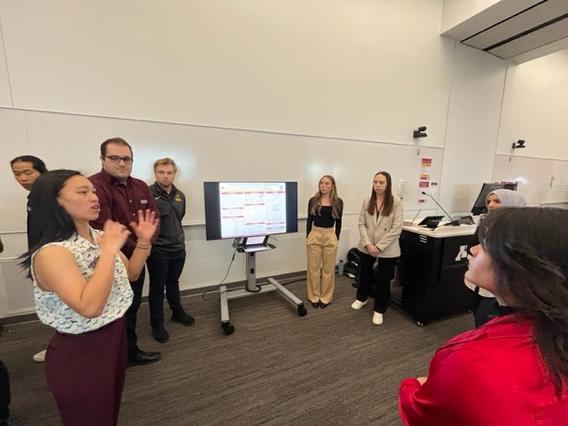
Pramisha presents at the 2024 Annual Meeting of the American Society of Neurorehabilitation (ASNR)!
Pramisha presented a poster titled " Deficits in cognitive aspects of movement control differ based on the side of brain damage in chronic stroke survivors" at the ASNR conference.
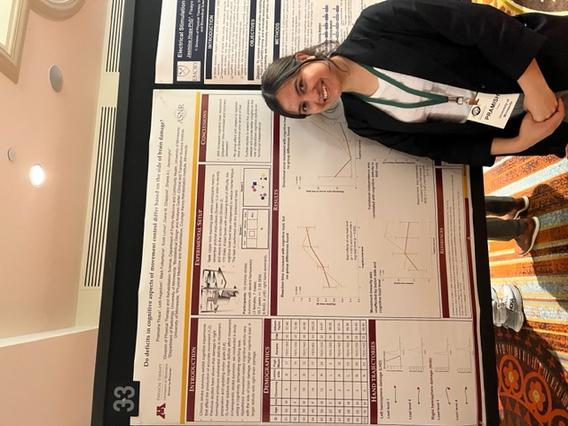
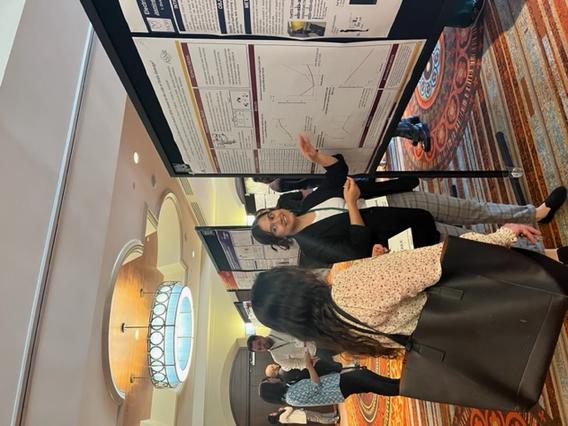
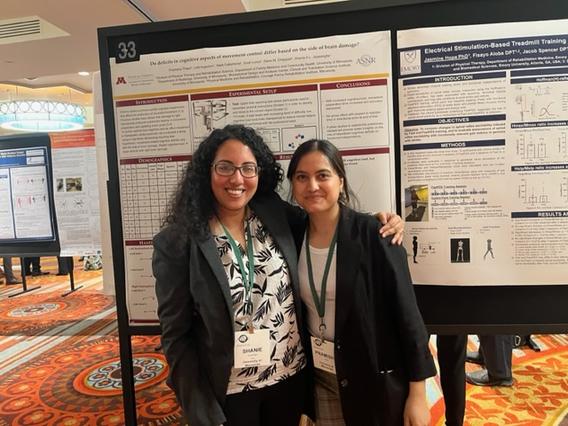
Congratulations Pramisha for being selected as a 2024 Advanced Pathways to Research Program (A-PReP) Scholar!
This is through The Clinical and Translational Science Institute (CTSI) at the University of Minnesota and begins in June.
Dr. Jayasinghe presents at the Society for Neuroscience (SfN) conference
Dr. Jayasinghe presented a poster at the Society for Neuroscience (SfN) conference 2023.
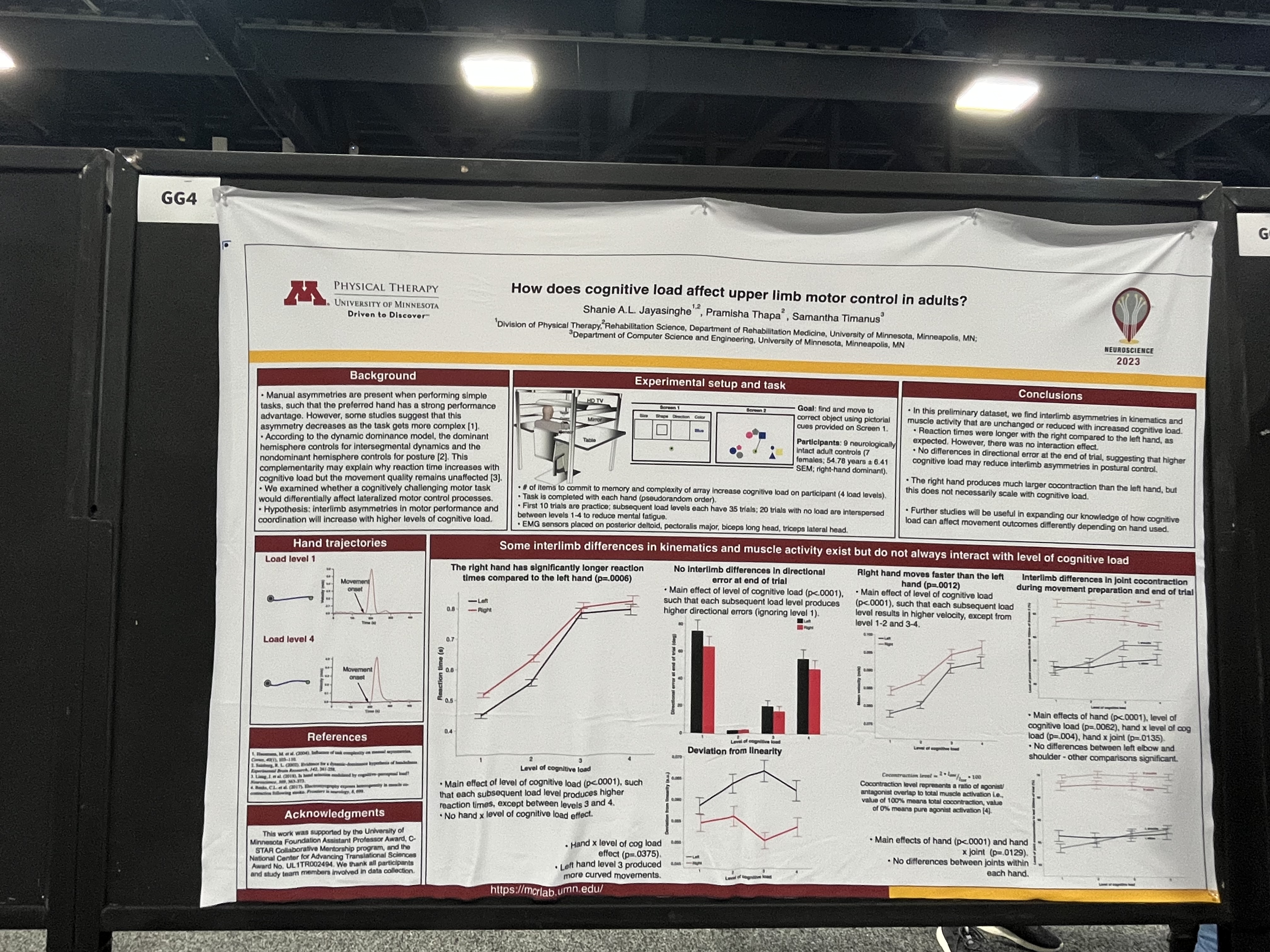
Congratulations Pramisha!
Pramisha receives a Rehab Science new student research assistant award that will provide her partial funding to complete her studies for the next 1.5 years.
Dr. Jayasinghe presents at the Neurosciences Summer Retreat
On July 25, 2023, at The Humphrey School Conference Center, Dr. Jayasinghe showcased her research during The Neuroscience Summer Retreat. Her presentation revolved around "Neural mechanisms of upper limb movements." In her talk, she delved into the model for controlling upper limb movement and neural lateralization. Moreover, she offered insights into ongoing lab studies, particularly centered on examining the impact of cognitive load on lateralized motor control processes using data from control scenarios.
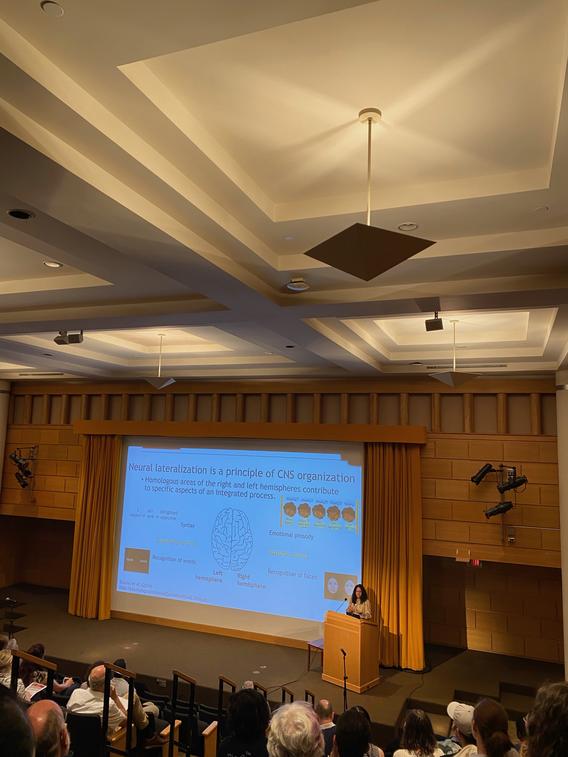
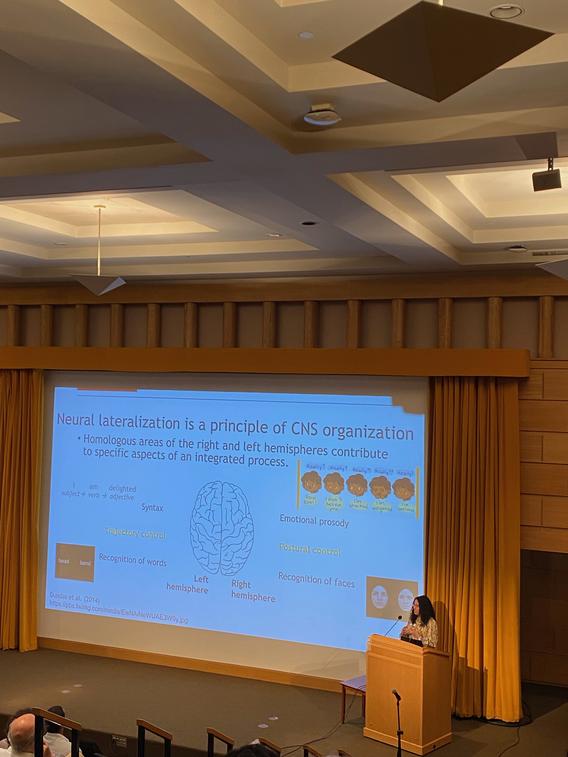
Welcome DPT Research Group 2023-2024!
MCR Lab welcomes Lelti Asgedom as a Research Coordinator
Sam joins the MCR lab this summer
DPT research group presents at Poster Day!
Michaela, Katie, Jake, and Emma presented their work at the Division of Physical Therapy’s annual Poster Day. Their poster was titled “Effects of visual perturbations on online motor control”. This signified the group’s culmination of one year of research in the MCR lab. Good luck to the students as they begin their clinical rotations in fall!
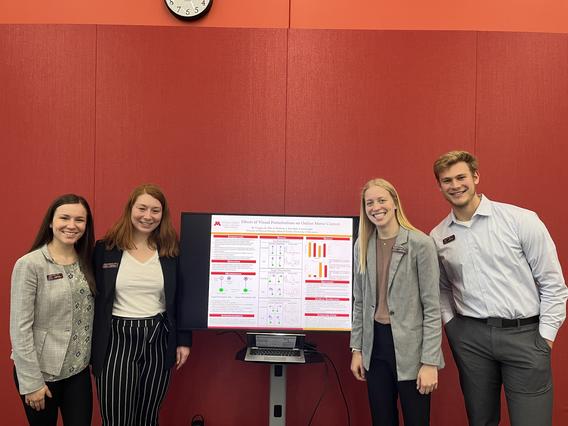
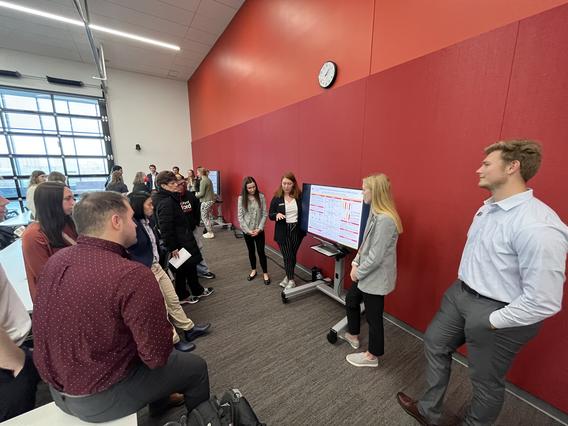
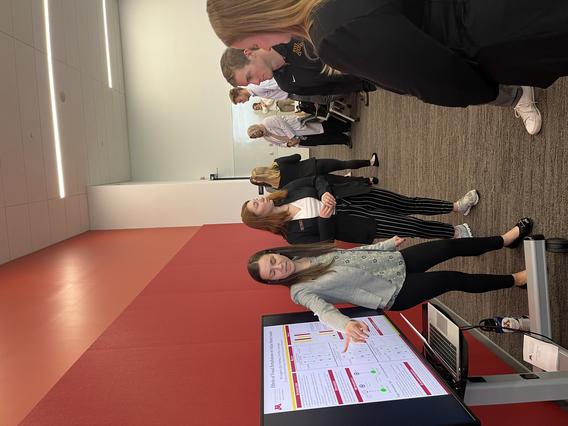
Dr. Jayasinghe moderates a panel on Neurorobotics at the Design of Medical Devices conference
Dr. Jayasinghe moderated a panel on ‘Neurorobotics: Robots for Neurorehabilitation Research’ at the Design of Medical Devices conference held at the Graduate Hotel on-campus. The session was organized by Dr. Juergen Konczak and there were 3 speakers from the School of Kinesiology who talked about current research to examine sensorimotor function and motor learning using robotics devices.
Dr. Jayasinghe presents at the Center for Neuroengineering (CNE) weekly seminar
Dr. Jayasinghe was invited to speak at the weekly seminar organized by the Center for Neuroengineering at the University of Minnesota. She presented research on the role of sensory feedback and cognition on movement control. This is research that was conducted during her graduate studies and postdoc work, along with current work in the MCR lab.
Dr. Jayasinghe receives C-STAR’s Collaborative Mentorship Funding
Dr. Jayasinghe is awarded Collaborative Mentorship Funding from the Center for Smart Use of Technologies to Assess Real World Outcomes (C-STAR), which is one of six national resource centers part of the Medical Rehabilitation Research Resource Network (MR3) of the NIH. She will be mentored by established investigators at the Shirley Ryan AbilityLab to develop protocols for EMG analysis and eye tracking that will enable her to pursue large-scale funding opportunities for her research.
Dr. Jayasinghe presents work at ASNR
The annual meeting for the American Society for Neurorehabilitation (ASNR) was held in Charleston, South Carolina. Dr. Jayasinghe presented a poster comprising data collected on a deafferented patient at Penn State as well as data from age-matched controls collected in the MCR lab. This work is an ongoing collaboration with Drs. Robert Sainburg and Fabrice Sarlegna.
Pramisha Thapa joins the MCR lab
Pramisha Thapa joins as the first PhD student of the MCR lab. Pramisha obtained her bachelor’s degree in Physiotherapy from Sikkim Manipal University, India.
Dr. Jayasinghe attends the TIGRR workshop
Dr. Jayasinghe was accepted as a mentee to the competitive Training in Grantsmanship for Rehabilitation Research (TIGRR) workshop held in the Isle of Palms, South Carolina. This 4-day intense workshop brings together early stage rehabilitation research investigators and established NIH-funded investigators to develop skills in grant writing.
